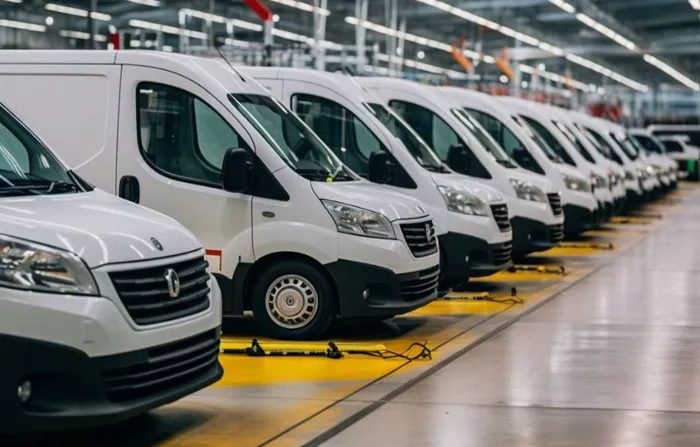The UK market for new light commercial vehicles (LCVs) fell by 11.8% in May, marking the sixth month in a row of decline. A total of 22,796 vans, 4x4s, and pickups were registered, according to new data from the Society of Motor Manufacturers and Traders (SMMT). This is the lowest May figure since 2022, as weak business confidence continues to hold back investment in fleet vehicles.
Sales dropped across all van sizes. Large van registrations fell 14% to 14,652 units. Medium vans were down 9.2% to 4,065 units, and small vans dropped 7.8% to 673 units. Only the 4×4 segment saw growth, rising 36.9% to 716 units. Pickup sales declined 12.7% to 2,690 units, following new tax rules introduced in April that treat double-cab models as cars for benefit-in-kind and capital allowance purposes.
These tax changes are adding extra costs for businesses in key sectors such as farming, construction, and utilities, which rely on these vehicles. As a result, companies are delaying purchases, keeping older, more polluting vehicles in service. This also risks lowering tax revenue due to reduced vehicle turnover. The SMMT is urging the government to delay the new tax rules for at least a year, to give businesses more time to adapt, especially as new low- and zero-emission models become available.
Despite the overall decline, demand for battery electric vans (BEVs) continues to rise. Sales were up 50% in May, reaching 1,731 units—the seventh month in a row of growth. There are now nearly 40 electric van models on the market, suitable for a variety of business needs. Still, BEVs made up just 7.6% of new registrations in May and 8.2% for the year so far—well below the government’s 2025 target of 16%.
The SMMT says the Plug-in Van Grant is still vital for encouraging electric van uptake. However, more investment in charging infrastructure—at depots, public sites, and shared hubs—is urgently needed. Faster connections to the power grid for fleet depots are also critical, especially as some businesses face wait times of up to 15 years, beyond the 2035 deadline to end sales of new petrol and diesel vans. Better coordination of local planning policies would also help companies switch to cleaner fleets with more confidence.
SMMT Chief Executive Mike Hawes said:
“Six months of falling van sales reflects the tough economic climate and low business confidence. Tax changes like those affecting double-cabs will only make things harder. It’s essential to support fleet renewal with the latest low-emission models. It’s encouraging to see electric van sales rising, but with market share still at half the required level, we need action to speed that up. Expanding the rollout of affordable, van-ready chargepoints is the next big step.”

